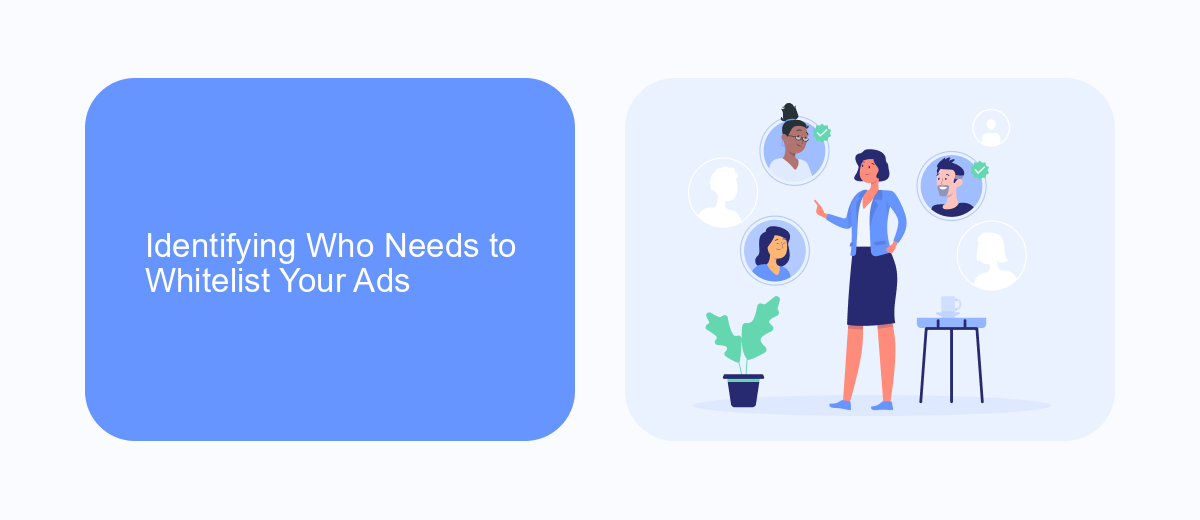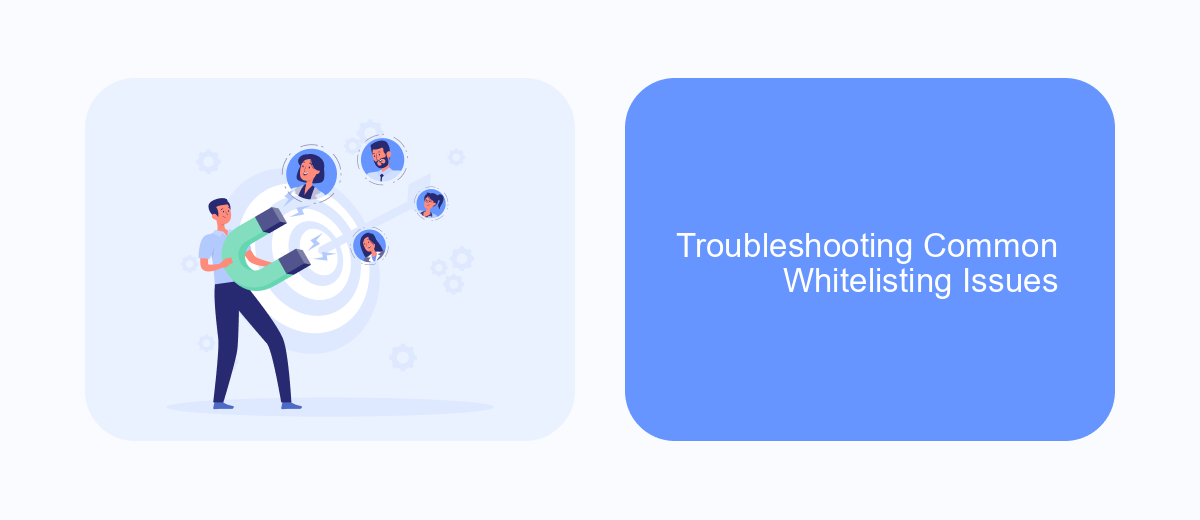In today's digital landscape, Facebook Ads have become a vital tool for businesses aiming to reach their target audience effectively. However, to ensure your campaigns run smoothly and reach their full potential, it's essential to understand the process of whitelisting. This guide will walk you through the steps to whitelist Facebook Ads, helping you optimize your advertising strategy and enhance your brand's online presence.
Understanding the Importance of Whitelisting Facebook Ads
Whitelisting Facebook ads is a crucial strategy for businesses aiming to maximize their advertising potential on the platform. By whitelisting, advertisers ensure that their ads are not blocked by ad blockers, reaching a wider audience and improving engagement rates. This practice not only enhances visibility but also builds trust with users who see ads from verified and credible sources. Understanding the importance of whitelisting can significantly impact the success of your advertising campaigns.
- Ensures ads reach the intended audience without being blocked.
- Improves engagement rates by increasing ad visibility.
- Builds trust with users by displaying ads from verified sources.
- Enhances brand credibility and reputation.
- Optimizes advertising budget by maximizing ad reach and effectiveness.
Incorporating whitelisting into your Facebook advertising strategy can lead to more successful campaigns by ensuring your ads are seen by the right people. This approach not only boosts the effectiveness of your marketing efforts but also helps in maintaining a positive brand image. As digital marketing continues to evolve, understanding and implementing whitelisting practices can provide a competitive edge in reaching and engaging your target audience.
Identifying Who Needs to Whitelist Your Ads

Understanding who needs to whitelist your Facebook ads is crucial for ensuring that your campaigns reach the right audience without unnecessary interruptions. Typically, this involves identifying stakeholders who have control over ad visibility and permissions within their networks. These can include IT administrators, marketing managers, or compliance officers within a company who oversee digital advertising policies. By engaging with these individuals, you can ensure that your ads are not blocked or filtered by internal systems, maximizing their reach and effectiveness.
Additionally, if your business relies on third-party services to manage ad campaigns, it is essential to communicate with these service providers to understand their whitelisting processes. Tools like SaveMyLeads can be instrumental in streamlining ad operations and integrations, ensuring that your Facebook ads are seamlessly incorporated into your marketing strategy. By leveraging such platforms, you can automate the process of keeping your ads visible and compliant across different channels, allowing you to focus on crafting compelling ad content that resonates with your target audience.
Methods for Whitelisting Facebook Ads

Whitelisting Facebook ads is an essential process for businesses aiming to maximize their advertising reach while ensuring compliance and safety. This practice involves allowing specific ads to bypass certain filters or restrictions, ensuring they reach the intended audience without hindrance. By understanding and implementing whitelisting, advertisers can ensure their campaigns run smoothly and effectively.
- Identify the ads that need to be whitelisted. This involves selecting specific campaigns or creatives that are crucial for your marketing strategy.
- Contact Facebook support or your account manager. Provide them with the necessary details about the ads you wish to whitelist, including the ad ID and reasons for whitelisting.
- Monitor the performance of your whitelisted ads. Regularly check to ensure they are delivering the desired results and adjust your strategy as needed.
By following these steps, businesses can effectively whitelist their Facebook ads, ensuring that their marketing efforts are not only compliant but also optimized for success. This proactive approach can lead to improved ad performance and better audience engagement, ultimately driving business growth and achieving marketing objectives.
Troubleshooting Common Whitelisting Issues

When attempting to whitelist Facebook ads, users may encounter several common issues that can hinder the process. Understanding these potential problems is essential for ensuring a smooth and successful whitelisting experience.
One frequent issue is incorrect account settings, which can prevent ads from being properly whitelisted. It's crucial to verify that all settings align with Facebook's guidelines. Additionally, network or browser-related problems might interfere with the process, causing delays or errors.
- Ensure your Facebook account settings are correctly configured.
- Check for any network connectivity issues or browser compatibility problems.
- Verify that you have the necessary permissions to whitelist ads.
- Clear your browser cache and cookies to resolve potential conflicts.
If issues persist, consider reaching out to Facebook support for further assistance. They can provide guidance tailored to your specific situation and help troubleshoot any ongoing problems. By addressing these common challenges, you can streamline the whitelisting process and enhance the effectiveness of your Facebook advertising strategy.


Best Practices for Effective Whitelisting
To ensure effective whitelisting of Facebook Ads, start by clearly defining your target audience. This involves analyzing your current customer base and identifying the demographics, interests, and behaviors that align with your brand's goals. By understanding who your ideal customers are, you can tailor your ads to reach the right people, maximizing engagement and conversions. Regularly reviewing and updating your audience insights will help you stay relevant and effective in your advertising efforts.
Another best practice is to leverage automation tools like SaveMyLeads to streamline your ad management process. SaveMyLeads can help you integrate Facebook Ads with other platforms, allowing for seamless data transfer and improved campaign tracking. By automating repetitive tasks, you can focus on optimizing your ad content and strategy. Additionally, ensure your ad creatives are compelling and aligned with your brand message. Regular A/B testing of ad variations will provide insights into what resonates best with your audience, leading to more successful ad campaigns.
FAQ
What does it mean to whitelist Facebook Ads, and why is it important?
How can I whitelist Facebook Ads in my ad blocker?
What steps should I take to ensure my Facebook Ads are not blocked by users' ad blockers?
How can I automate the process of managing Facebook Ads whitelisting and integrations?
Is there a way to monitor the effectiveness of whitelisted Facebook Ads?
Would you like your employees to receive real-time data on new Facebook leads, and automatically send a welcome email or SMS to users who have responded to your social media ad? All this and more can be implemented using the SaveMyLeads system. Connect the necessary services to your Facebook advertising account and automate data transfer and routine work. Let your employees focus on what really matters, rather than wasting time manually transferring data or sending out template emails.
